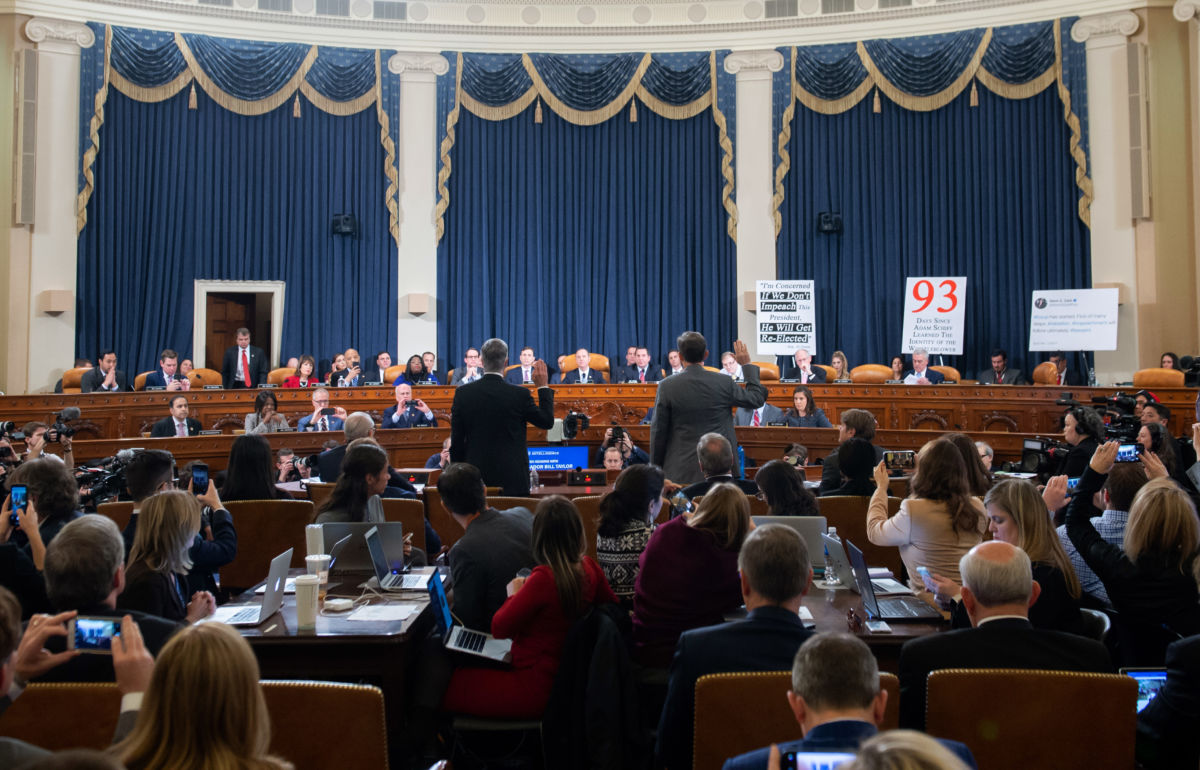The public portion of the official impeachment inquiry by the U.S. House of Representatives into President Donald Trump begins Wednesday, with televised hearings by the House Intelligence Committee having started at 10:00am ET.
The two witnesses who testified — both of whom have already given sworn depositions in closed-door sessions with lawmakers — are Ambassador William B. Taylor, Chargé d’Affaires of the U.S. Embassy in Ukraine, and George Kent, Deputy Assistant Secretary of State for European and Eurasian Affairs. The second day of public hearings willtake place Friday.
While Republicans circulated talking points ahead of the hearings detailing their messaging strategy to defend Trump and call the Democratic-controlled hearings into dispute, HuffPost’s Washington bureau chief Amanda Terkel cautioned against making the issue at the center of the hearings any more complicated than it is.
“In reality,” explained Terkel, “it all remains very simple ― as simple as when the whistleblower complaint first came out. Making the entire scandal seem messy and complicated is exactly what Trump and his allies are aiming to do in advance of this week’s first House hearings in the impeachment investigation.”
It seem “like it’s getting more complicated,” she noted, “but it really isn’t.”
WATCH:
Prior to the hearing, Rep. Mike Quigley (D-Ill.), a member of the committee, said that most of what the American people “need to know is already in the public domain.”
Citing the vast amount of already available evidence regarding President Trump efforts to use the power of his office in an attempt to get the Ukraine government to dig up dirt on former Vice President Joe Biden, among his top political rivals in next year’s elections, Quigley said the public testimony serves to put “a human face on” on what the witnesses have already said behind closed doors.
“There’s a reason that you don’t just hand out transcripts at a jury trial. Watch these people,” said Quigley. “This is the cream of our diplomatic corps. They’re speaking truth to power at great risk.”
Join us in defending the truth before it’s too late
The future of independent journalism is uncertain, and the consequences of losing it are too grave to ignore. To ensure Truthout remains safe, strong, and free, we need to raise $44,000 in the next 6 days. Every dollar raised goes directly toward the costs of producing news you can trust.
Please give what you can — because by supporting us with a tax-deductible donation, you’re not just preserving a source of news, you’re helping to safeguard what’s left of our democracy.
